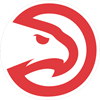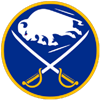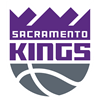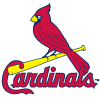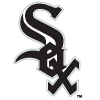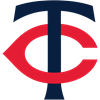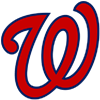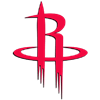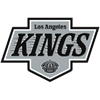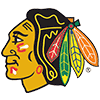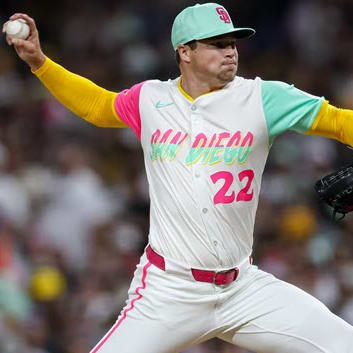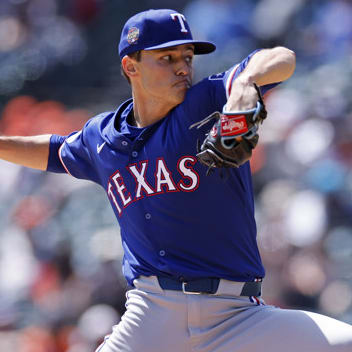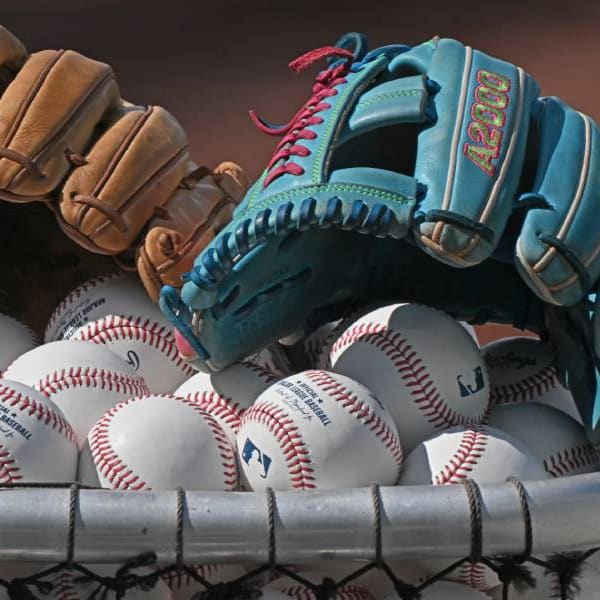As we all know, prospect development is not linear. Players that look to be the next big thing will have down years only to bounce back a year — or more — later, and prospects that looked like organizational depth become potential stars only to face regression the next season. A prospect list is just a moment in time, and those players very rarely remain stagnant in their respective spot.
This week, let's take a look at the prospects who saw their stock rise — and some whose stock fell — from the Angels, Mariners and Rangers.
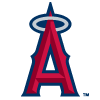 Los Angeles Angels
Los Angeles Angels
Three Up
Caden Dana, RHP: Dana was given $1.5 million by the Angels to bypass a commitment to Kentucky in 2022, and the right-hander now might be the best pitching prospect in the system after forging a 3.56 ERA and 89/30 K/BB in 68.1 innings across 14 starts at the Low- and High-A levels.
Level of optimism: Moderate-to-high. This is one of the worst systems in baseball, so being the top pitching prospect might not be the compliment it would be for other teams. That being said, Dana is a 19-year-old who already shows a plus fastball and curve, and while the command needs work, there's plenty of time to iron that out. He could be dominant in relief, but Dana has the upside to pitch near the top of a rotation someday.
Nelson Rada, OF: Rada didn't match the .885 OPS he put up in 2022 while
As we all know, prospect development is not linear. Players that look to be the next big thing will have down years only to bounce back a year — or more — later, and prospects that looked like organizational depth become potential stars only to face regression the next season. A prospect list is just a moment in time, and those players very rarely remain stagnant in their respective spot.
This week, let's take a look at the prospects who saw their stock rise — and some whose stock fell — from the Angels, Mariners and Rangers.
 Los Angeles Angels
Los Angeles Angels
Three Up
Caden Dana, RHP: Dana was given $1.5 million by the Angels to bypass a commitment to Kentucky in 2022, and the right-hander now might be the best pitching prospect in the system after forging a 3.56 ERA and 89/30 K/BB in 68.1 innings across 14 starts at the Low- and High-A levels.
Level of optimism: Moderate-to-high. This is one of the worst systems in baseball, so being the top pitching prospect might not be the compliment it would be for other teams. That being said, Dana is a 19-year-old who already shows a plus fastball and curve, and while the command needs work, there's plenty of time to iron that out. He could be dominant in relief, but Dana has the upside to pitch near the top of a rotation someday.
Nelson Rada, OF: Rada didn't match the .885 OPS he put up in 2022 while playing in the DSL, but his .395 on-base percentage along with 55 stolen bases as a player who didn't turn 18 until the end of August is even more impressive.
Level of optimism: Moderate-to-high. The concern with Rada is power, as his 160-pound frame and line-drive swing are not exactly built to pile up the homers. He can compensate with his speed and acumen on the basepaths, however, and that aforementioned swing along with a strong approach at the plate make him likely to get on base at a high clip. There's risk because of how young he is, but that risk comes with significant reward. He just might be the top prospect in this system at this point next year.
Jorge Marcheco, OF: Marcheco put together a solid season as a 21-year-old, reaching High-A with a 3.55 ERA and a K:BB of 126:21. He was even more impressive in a five-game sample once reaching that level with a 1.88 ERA and 33/3 K/BB in his 28.2 innings with HIgh-A Tri-City.
Level of optimism: Moderate. Marcheco appears to have a high floor as a starter who can throw all three of his pitches for strikes and generally hit his spots with them. He doesn't have a high ceiling, however, because none of these pitches currently project plus, so any loss of command could contribute to him being a non-prospect. The ability to locate does give him a chance, however, and if any of his pitches make a jump he could be a mid-rotation arm in the coming years.
Three Down
Arol Vera, INF: It wasn't all that long ago that people were talking about Vera as one of the best prospects in the Angels' system, but a disappointing 2022 was met with another middling — and middling is being nice — 2023 with a .584 OPS over 116 games, with most of his action coming at the High-A level.
Level of concern: High. Vera is still just 21, so there is time to turn things around. There just hasn't been much to suggest he can over these last two campaigns. He struck out 138 times last year in 489 at-bats, and that's a number that's far too high for anyone, especially a hitter who has below-average power and doesn't exactly pile up the walks, either. At this point in his career, he's much closer to a non-prospect than one who projects to someday be a regular, even when you consider he's a solid defender up the middle.
Jordyn Adams, OF: Adams did have his best professional season in 2023 with 15 homers, 44 stolen bases and an .816 OPS for Triple-A Salt Lake. There were signs for concern (we'll get into those, of course), and he was awful in his time in the majors with a .253 OPS over his 17 games with the Halos.
Level of concern: Moderate to high. Adams is an outstanding athlete who could have played high-level college football coming out of high school, and it's nice to see some of those tools were applied in 2023. The swing-and-miss is still far too apparent — he struck out in 16 of his 39 at-bats with the Angels and in 133 of his 415 at-bats with the Bees — and we're not talking about an elite power hitter by any stretch of the imagination. The athleticism is intriguing, but at this point, what you see is kinda what you get, and what you get isn't quite good enough.
Adrian Placencia, OF: Placencia looked like his stock was on the rise after a 2022 season that saw him post a slash of .254/.387/.427 as a teenager in Low-A. Those numbers dropped substantially in 2023 with just a .690 OPS over 123 at-bats, although he was able to reach Double-A to end the year.
Level of concern: Moderate. If I was betting on any of these three players in this section to bounce back in 2024, it'd be Placencia. He still showed off his strong approach with 82 walks over 109 games with Tri-City, and he's a solid defender at second base with enough speed to be a stolen base threat. The strikeouts are problematic — stop me if you've heard that one before — and he's unlikely to ever hit for a high average, but there might be just enough here for him to develop into a quality bench bat, maybe even a starting second baseman.
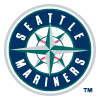 Seattle Mariners
Seattle Mariners
Three Up
Ryan Bliss, 2B: Bliss was the 42nd pick of the 2021 draft, so he didn't enter the 2023 season a complete afterthought, but he certainly saw his stock rise after he hit .304/.378/.524 with 23 homers and 55 stolen bases. He was also one of the key prospects traded at the deadline, joining Seattle in the deal which sent Paul Sewald to Arizona.
Level of optimism: High. Full disclosure: I'm higher on Bliss than most of the industry. It's also worth noting that he wasn't nearly as successful in Triple-A as he was with Double-A Amarillo, as he hit .358 while he was in the Texas League. He did finish with an .822 OPS in his 47 games with Triple-A Tacoma, however, and he showed a solid approach along with a power/speed combination that can't help but be intriguing. There's some risk here, but Bliss has a chance to be a starting second baseman by the end of 2024, and a pretty darn good one, too.
Gabriel Gonzalez, OF: Gonzalez took another step forward after a strong 2022 season, but this time at the full-season level. He finished the year with a .298/.361/.476 slash in time with Low-A Modesto and High-A Everett, and he added 18 homers and 10 stolen bases for good measure over 116 games.
Level of optimism: Moderate-to-high. This would be a straight "high" if not for his struggles for most of his time in Everett, as his OPS dropped from .933 to .677 after being promoted to the Northwest League. It's worth noting he spent the entire season as a teenager and doesn't turn 20 until January, and he's a right-handed hitter who shows a plus hit tool with enough strength to someday have above-average power. He's not a great defender, but the bat has a chance to carry him to a regular role in the second-half of the decade.
Michael Arroyo, SS: Seattle signed Arroyo for just under $1.5 million in 2022 out of Colombia, and he's quickly become one of the best prospects in a system loaded with shortstops. He dealt with injuries, but was still able to finish with an .803 OPS over 220 at-bats accrued over the 2023 campaign; the overwhelming majority of that time in Low-A with Modesto.
Level of optimism: Moderate-to-high. Arroyo was scorching hot to begin the season, but struggled over the second-half after getting back on the field. He still showed the makings of a plus hit tool with a chance to gain some power as he gets stronger, and he's a solid defender who has a good chance to stick at shortstop. He doesn't have the same upside as some of the other shortstops — one we'll talk about in a second — but he has just as high of floor as any of them outside of possibly Cole Young.
Three Down
Prelander Berroa, RHP: Berroa was traded to Seattle in a deal for Donnie Walton, a deal that the Giants assuredly regret at this stage. The 23-year-old was moved to the bullpen after making six starts, and he finished with a 2.89 ERA and 101:39 K:BB over 65.1 innings in Double-A while also making two appearances with the Mariners.
Level of concern: Moderate. The reason you have to include Berroa in the stock down section is that he's assuredly going to be a reliever going forward, and there's just not nearly as much value in bullpen arms as there are in starters. He also has really struggled to throw strikes, which makes him unlikely to be a future closer. All that being said, the stuff is electric, with a plus-plus fastball and wipeout slider. If he can just keep the command issues to a bare minimum, there's a chance he could be among the best relievers in baseball. At the age of 23 (24 in April) I have my doubts he can reach that lofty status.
Taylor Dollard, RHP: A fifth-round pick in 2020, Dollard was one of the most effective starters in the Seattle system in 2022 with a 2.25 ERA and 131:31 K:BB over 27 starts and 144 innings at the Double-A level with Arkansas. His 2023 season was over before it really could begin, however, as he made just three starts before needing season-ending shoulder surgery.
Level of concern: Moderate-to-low. There has to be at least moderate concern anytime a pitcher suffers a serious shoulder injury. That being said, Dollard might be one of the arms who is better to handle a long layoff, as he relies on his excellent command more than his stuff. With four pitches that can be thrown in the strike zone with an above-average slider and improving change. It wouldn't be a surprise if Dollard bounces back with a quality 2024, but again, shoulder injuries are awfully scary.
Felnin Celesten, SS: Celesten was considered by many to be one of — if not the — best prospects in the 2023 international class, and the Mariners happily gave him $4.7 million to procure his services. Unfortunately he was unable to get on the field in 2023 due to a hamstring strain, so he won't be able to make his professional debut until 2024.
Level of concern: Low. If we're being honest, there just weren't many prospects that had poor years in the Seattle system; a nice consolation prize after failing to make the postseason in 2023. Celesten has enormous upside with a chance for five plus tools, and the only reason he's not considered one of the best prospects in the sport is because he hasn't had a chance to show off his talent against professional pitching. Buy low if you can in dynasty/keeper leagues.
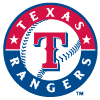 Texas Rangers
Texas Rangers
Three Up
Evan Carter, OF: The most "well, duh" to ever "well, duh." Carter was considered one of the better outfield prospects in baseball prior to 2023, but things escalated quickly. Not only did Carter slash .288/.413/.450 in his 108 MiLB games in 2023 with 13 homers and 26 steals, he forged a 1.058 OPS in 62 at-bats with the Rangers, and he was hitting in the middle of the lineup in the postseason while helping Texas take home its first ever World Series title.
Level of optimism: High. You know what's scary? There are some who think that Carter isn't even the best outfield prospect in the system. All due respect to Wyatt Langford, but I think that's nuts, as Carter is above-average in every tool and has an approach at the plate that suggests he's a 15-year veteran. Carter may not be a generational talent, but he's going to be a very, very good player for a very, very long time.
Abimelec Ortiz, 1B: Ortiz went undrafted and signed for $20,000 in 2021, and didn't look like a factor in 2022 with just a .688 OPS in Low-A. That changed in 2023 after the first baseman socked 33 homers and slashed .294/.371/.619, with 80 of his 119 games coming as a member of High-A Hickory.
Level of optimism: Moderate. There is just one plus tool in Ortiz's bag — assuming you don't count having an amazing name like Abimelec as one — but that one tool is power, and he has plenty of it. He's an assertive hitter who isn't allergic to walks, and he uses enough of the field to suggest a solid if unspectacular average. The bat is going to have to play here as Ortiz is a slow runner and can't play anything but first base, but those looking for some power potential on their keeper rosters should take a close look.
Echedry Vargas, INF: Vargas was a solid performer in 2022 as well after signing for just $10,000 last January, but it was his work in 2023 that stood out. He appeared in 52 games at the rookie level while hitting .315, stealing 17 bases and mashing 11 homers over his 197 at-bats, and he even got a chance to play a game in Low-A with Down East as an 18-year-old who doesn't turn 19 until February.
Level of optimism: Moderate-to-high. There's no plus tool in Vargas's bag at this point, but there's no real weakness here, either. Both the hit and power tools have a chance to be above-average, and while he's not the fastest player in the system (nor close) he possesses good enough speed to project double-digit stolen bases. He also has a chance to be a starting shortstop, even if second or third seems more likely at this point. Vargas is on the rise, but his stock could soar if he puts up similar numbers in a full-season ball this summer.
Three Down
Aaron Zavala, OF: Zavala was a strong performer in both the 2021 and 2022 seasons after being selected out of Oregon with the 38th pick, but the results were downright poor in 2023. He hit just .194 over his 95 games, and he struck out a whopping 159 times in 341 at-bats with Double-A Frisco.
Level of concern: Moderate. Zavala struck out far too often, but he still showed his patented ability to get on via free pass with 72 walks over just 95 games. The biggest concern was the drop in power, as he had just 21 extra-base hits and five homers over those aforementioned 341 at-bats. He's also a so-so defender with average speed, so he's not going to compensate for lack of pop with thefts on the bases or elite defense. Zavala has a lot of things going for him, but the 23-year-old needs to cut down the strikeouts if he's going to be a regular someday.
Justin Foscue, 2B: Drafted with the 14th pick out of Mississippi State in 2020, Foscue had another solid season in 2023 at the Triple-A level, as he slashed .266/.394/.468 with 18 homers and 14 stolen bases with Round Rock.
Level of concern: Moderate-to-low. Foscue has performed admirably as a professional, and it's a little weird to write him as a "stock down" player. That being said, it's a little understandable why so many have doubts about him being a regular. There isn't much swing-and-miss with just 208 strikeouts over 285 career games in the minors, but there's a lot of weak contact that suggests he won't be able to put up as strong of average at the highest level. He's also a mediocre defender, so the bat is going to have to max out for him to be a regular. I still like Foscue a lot and think there's just enough offensive upside to make up for the so-so defense, but many in the industry believe he's just a bench/platoon bat going forward.
Dustin Harris, OF: Like Foscue, Harris's numbers don't necessarily stand out as a player who saw his stock drop in 2023. His numbers have dropped each of the last few seasons however, as a hitter who hit .327/.421/.542 "slumped" to .259/.378/.431 in his 127 games with Double-A Frisco and Triple-A Round Rock.
Level of concern: Moderate-to-low. The potential plus hit tool that Harris showed in 2021 is a thing of the past, which is disappointing but not necessarily a massive detriment. What's a little more concerning is that the power hasn't really come, but it's worth noting that he was able to go deep a respectable nine times in Triple-A compared to his five in Double-A over a very similar amount of playing time. He also swiped 42 bases, and he's a competent defender in the outfield and at first base. The 2023 season seemed to cement that Harris doesn't have the upside that was suggested in his first few years, but he still has a chance to be a useful player for the Rangers or another team.








